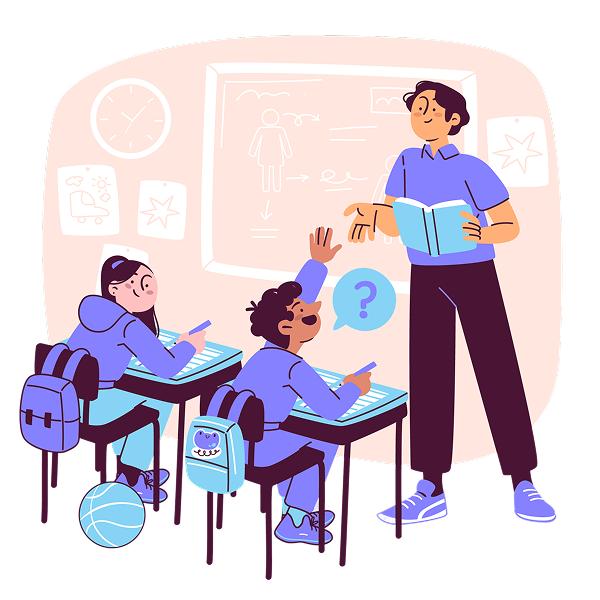Inteligența artificială (IA) s-a transformat rapid dintr-un concept futurist într-o parte integrantă a vieții noastre de zi cu zi, iar educația nu face excepție. În 2025, tehnologiile IA revoluționează peisajul academic, oferind oportunități fără precedent de învățare personalizată, eficiență administrativă și rezultate educaționale îmbunătățite. De la sistemele inteligente de îndrumare până la gestionarea sălii de clasă bazată pe inteligență artificială, impactul inteligenței artificiale este profund și de anvergură.
Adaptarea copilului la grădiniță
Trecerea de la mediul familial la grădiniță reprezintă un moment important în viața copilului și a familiei. Acest proces poate fi marcat de emoții intense, atât pozitive, cât și negative, iar succesul adaptării depinde de mai mulți factori, inclusiv de pregătirea prealabilă, susținerea părinților și abordarea educatoarelor. Adaptarea la grădiniță este procesul prin care copilul învață să se obișnuiască cu noul mediu, regulile, educatoarele și colegii.

Curiozitate și investigație în matematică. Predarea elementelor unui șir Fibonacci
Procesul de predare-învățare presupune combinarea comunicării cu un efort de învățare din partea elevului, profesorul facilitând dialogul, alegând și organizând materiale și activități și stimulând creșterea cognitivă a elevilor. Predarea trebuie făcută într-un mod care să asigure participarea activă a elevilor, încurajând învățarea activă și investigativă.

Rolul familiei în educarea copilului
Sunt de părere că familia are un rol important în ceea ce privește educarea copilului, deoarece mediul de dezvoltare este esențial și are un impact profund asupra dezvoltării sale emoționale, cognitive și sociale. Familia este primul și cel mai important context în care copilul învață valori și abilități care îl vor însoți pe tot parcursul vieții.

Rolul educației digitale în învățământul primar
Educația digitală în școlile primare se referă la utilizarea tehnologiilor informatice și a resurselor digitale pentru a sprijini procesul de învățare, dezvoltând abilități esențiale de utilizare a tehnologiei și promovând un învățământ mai interactiv și adaptat nevoilor elevilor. Implementarea educației digitale în școlile primare are un impact semnificativ asupra dezvoltării elevilor și a calității educației, fiind importantă pentru pregătirea acestora într-o lume din ce în ce mai digitalizată.

Abilități de comunicare
A comunica este cu adevărat o artă. Altfel spus, a comunica nu înseamnă doar a vorbi, ci a comunica înseamnă a ști să asculți, să interpretezi o informație, să știi să formulezi, să adresezi o întrebare, să spui un adevăr. Eu percep comunicarea ca o formă de înțelegere între două persoane care-și împărtășesc idei.

Prevenirea bullying-ul în școală
Bullying-ul este un fenomen care apare în grupurile de copii și se caracterizează prin comportamente care umilesc și exclud, având un caracter repetitiv sau făcând parte dintr-un tipar ce se manifestă pe o perioadă îndelungată (Catalano și colab., 2014). De obicei, astfel de comportamente sunt ascunse de privirile adulților și continuă în absența unor intervenții adecvate. În acest context, bullying-ul are un impact asupra tuturor celor implicați, chiar și asupra celor care nu par direct afectați. Răspândirea bullying-ului în școli este determinată de o combinație de factori individuali (de exemplu, trăsăturile de personalitate și istoricul familial), factori de grup (dinamicile de putere și conformitatea socială), factori școlari (climatul școlar și atitudinea cadrelor didactice), factori socio-culturali (normele sociale și influența mass-media) și factori comunitari (nivelul de implicare al comunității). Un mediu școlar nesigur, lipsa de supraveghere și toleranța față de violență pot amplifica fenomenul bullying-ului (Payne & Gottfredson, 2004).

Rolul familiei în educația copiilor
Primele deprinderi bune, virtuți și valori morale sunt formate și transmise în familie, în timpul celor șapte ani de acasă. Sensurile cuvântului familie sunt sinonime cu părinți, soți, neam, descendență, cămin, casă, dinastie, grup de persoane cu aceleași idealuri. Familia este locul unde copilul găsește sprijin sufletesc și emoțional pe tot parcursul vieții, este locul unde se trezesc şi încep să se dezvolte puterile sufleteşti ale copilului, unde i se formează caracterul unde începe să iubească, să creadă, să înfiripe prietenii. Fiecare copil rămâne de-a lungul întregii sale vieţi un reprezentant spiritual al familiei în care a fost educat, purtând în sufletul său valorile morale și culturale sădite în cadrul acesteia.

Incluziunea școlară
În contextul actual, incluziunea se referă la o abordare diferită a educației. (Broomhead, 2013) Observațiile din grupa de copii confirmă că nu toți educații răspund în mod consecvent și eficient la cerințele educaționale, dar, în același timp, toți pot obține rezultate, folosind abordarea corectă de predare-învățare-evaluare și respectând propriul progres al fiecărui copil, uneori comparativ cu cel așteptat în medie inițială. Incluziunea, este astfel o mișcare de extindere a scopului și rolului instituției educaționale formale, un proces de transformare a acesteia pentru a răspunde cerințelor copiilor. (Croitoriu, Conceptul de integrare si incluziune pentru elevii cu CES, 2021)

Matematica prin joc și poveste
Matematica, una dintre cele mai dificile și puțin îndrăgite materii, are totuși o poveste captivantă. Sunt mii de ani de când pe pământul însorit al Eladei, nu departe de oraşul Metros, exista prin graţia zeiţei matematicii, o colonie, pe numele ei Poligonia. Şi era alcătuită această comunitate din triunghiuri, patrulatere şi tot felul de poligoane care trăiau în bună înţelegere, pace şi armonie reciprocă.


